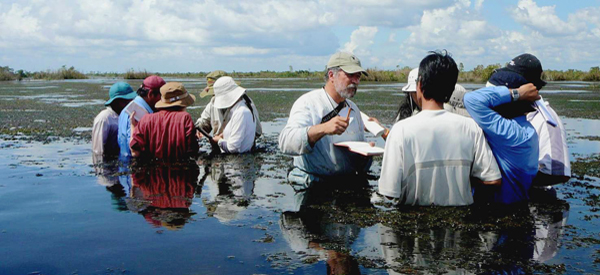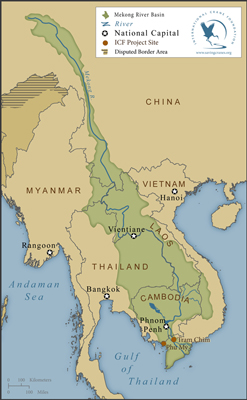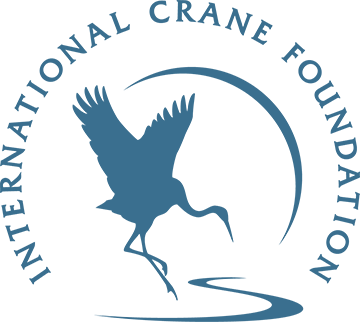 ICF Director of Field Ecology, Jeb Barzen (center), co-leads a wetland training course in Southeast Asia. |
| ICF has worked in the Mekong River Basin since 1988, coordinating community projects, long-term wetland restoration activities, and training for a new generation of wetland managers. Working with eight founding institutions, ICF created the University Network of Southeast Asia in 2001 to establish a training program in wetland ecology and management for students and professionals in the Mekong Basin. Over the past ten years, this network has grown to include 18 member universities and has trained over 200 students in wetland management. Many are now leaders in universities and conservation organizations working within the region. In 2010, ICF and the University Network received funding from the U.S. State Department to sample and analyze Persistent Organic Pollutants (POPs) in the Mekong River Basin. The State Department is interested in learning more about the possible impact of POPs on human health in the basin, while the University Network is interested in studying the ecology of the numerous, small isolated wetlands in the Mekong basin. With it’s extensive distribution and energetic students, the University Network is also a perfect vehicle for collecting data from the wetlands. With the help of the U.S. Geological Survey and ICF, eight research teams collected over 530 samples from approximately 500 wetlands in the Mekong Basin over a three-month period in 2011. Researchers are currently analyzing the data and plan on publishing their results this summer. The following project update is reprinted from the November 2011 newsletter of the U.S. State Department’s East and Southeast Asia Regional Environmental Affairs Office.  On October 27-30, 2011 the International Crane Foundation and the Mekong University Network conducted a workshop to study the results of a Department of State funded research project to analyze the concentration of Persistent Organic Pollutants (POPs) in the Mekong River Basin. The University Network for Wetland Research and Training in the Mekong Region currently has 18 member universities from all six countries of the Mekong Basin, as well as from Malaysia. The extensive nature of the University Network provided for a productive opportunity to collaborate with the U.S. State Department, which was interested in exploring how contaminants might affect human health throughout the Mekong Basin. Wetlands are basins that can accumulate toxins and preserve them in their water saturated sediments. As such, they represent a good place to examine long-term accumulation of POPs in the system to which people may be exposed. Concentrations of POPs in water are more ephemeral because water in Southeast Asia is variable in both time and in space. With the help of the U.S. Geological Survey and the International Crane Foundation, long time collaborators with the University Network, eight research teams collected over 530 samples from approximately 500 wetlands in the Mekong Basin over a three-month period during the middle of 2011. The extensive sampling followed a training workshop for team members conducted in December, 2010. This workshop developed the sampling protocols that the research teams would follow once they reached the field. In late October, 2011, these teams reconvened in Ho Chi Minh City at the University of Natural Sciences to complete data input and begin developing the final report, which should be finished by late March, 2012. Visitation to such a large number of wetlands in the Mekong Basin within the same year has never been accomplished and the University Network believes that these data can form the basis for additional publications that map and describe wetlands and their characteristics throughout the region. Data from these efforts will be distributed widely after publications have been completed. |
